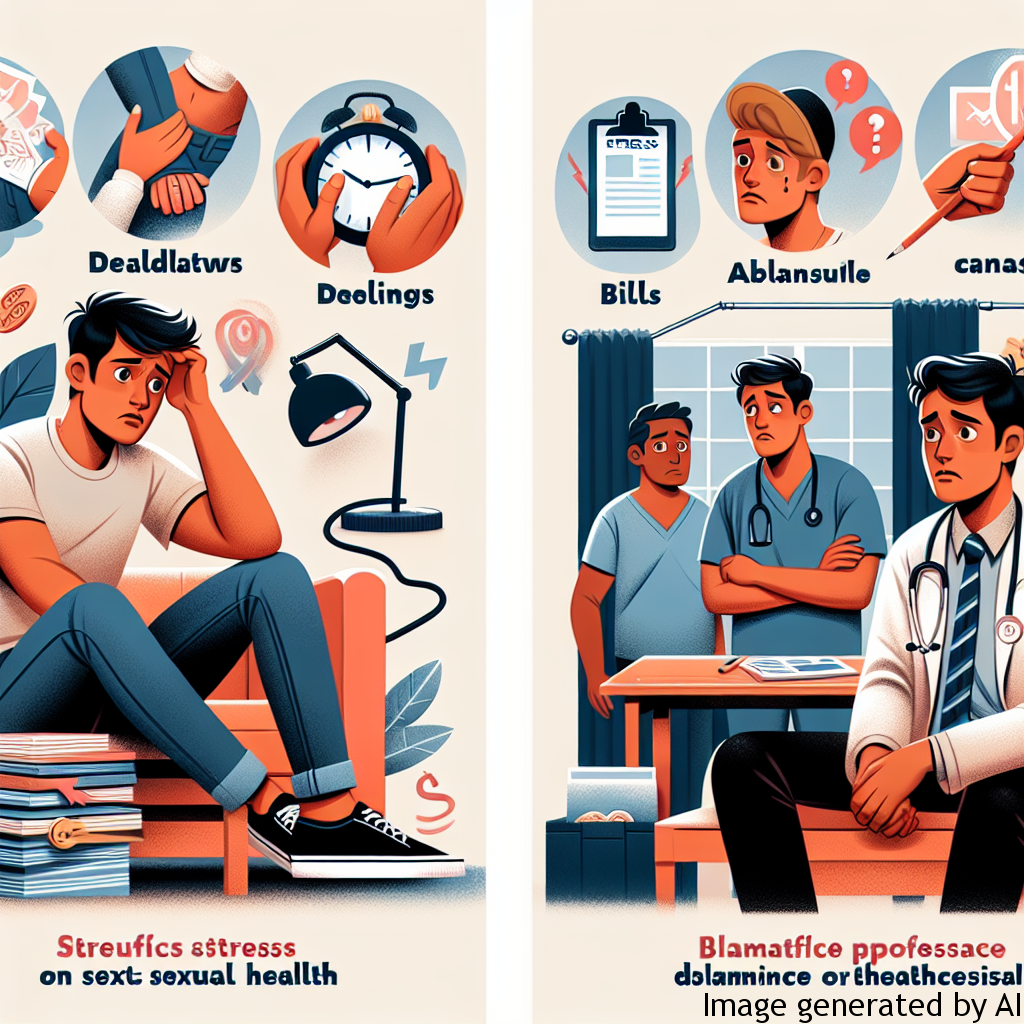Introduction
Our overall health is influenced by a mixture of physical, mental, and social dynamics that interact with each other in a complex manner. One of the most impactful of these dynamics is stress – a universal experience with both acute and chronic manifestations. One aspect that is often neglected in discussions about stress is its impact on sexual health, this being particularly noteworthy due to the distinct, possibly damaging effects stress can have on this part of an individual’s well-being. From a male perspective, this topic is further complicated by the societal and cultural expectations related to gender, commonly known as gender roles.
Gender Expectations and Their Impact on Men’s Mental Health
The societal standards and expectations that are placed on men can have profound effects on their psychological health. Traditionally, masculinity has been associated with aspects like emotional stoicism, self-sufficiency, dominance, and physical strength. Men are often expected to maintain a facade of invulnerability and to suppress their emotions, can have serious psychological consequences.
Expectation of Emotional Stoicism
One of the major characteristics often associated with masculinity is emotional stoicism. Men are frequently discouraged from expressing their emotions openly, which can lead to feelings of isolation and a sense of being overwhelmed by unexpressed emotions.
Expectation of Self-Sufficiency and Dominance
Another typical expectation of men is to be self-reliant and dominant. This can result in men carrying the burden of problems by themselves, leading to heightened stress levels and decreasing psychological wellbeing.
Examples of How Men’s Lives Can Be Affected by Gender Roles
Gender roles and societal expectations can lead to a variety of direct and indirect impacts on men’s lives. For instance, under the pressure of proving their masculinity, they can engage in high-risk behaviors such as heavy alcohol use, smoking, or reckless driving. These actions not only pose threats to men’s physical health but also increase stress levels, thus having a significant impact on sexual health. In the frame of relationships, men might suppress their emotional needs, which can lead to refusing help or not seeking it when needed. These behaviors can result in anxiety and depression, which may manifest as sexual dysfunctions or decreased libido.
Advice to Improve Mental Health Taking Into Account Gender Roles
It is crucial to challenge and change the destructive narrative around masculinity in order to better improve men’s mental health. Ensuring men know that it is healthy and okay to express their emotions or seek help is a crucial first step. Formal counseling or therapy can provide men with the necessary tools to manage stress, emotional distress or negative reactions that could affect sexual health. Regular exercise and a balanced diet can help mitigate physical effects of stress and improve sexual functions. It’s also essential to remember the importance of regular health check-ups to prevent and manage any sexually-related health issues early on.
Conclusion
Stress has a notable impact on sexual health, and the intersection of gender roles and expectations makes it a layered and complex issue to discuss. By shedding light on these issues and by starting dialogues around these themes, steps can be taken towards a more nuanced understanding that caters to healthier lives for everyone. While society continues to evolve, it is essential that gender roles follow suit to support men’s mental and sexual health.

